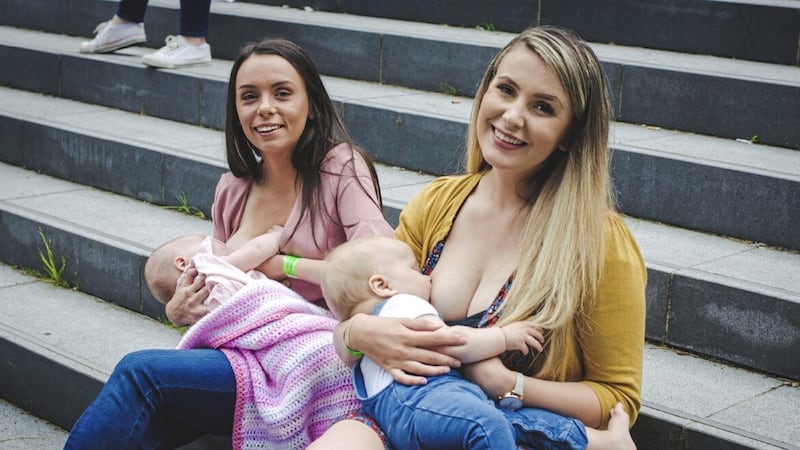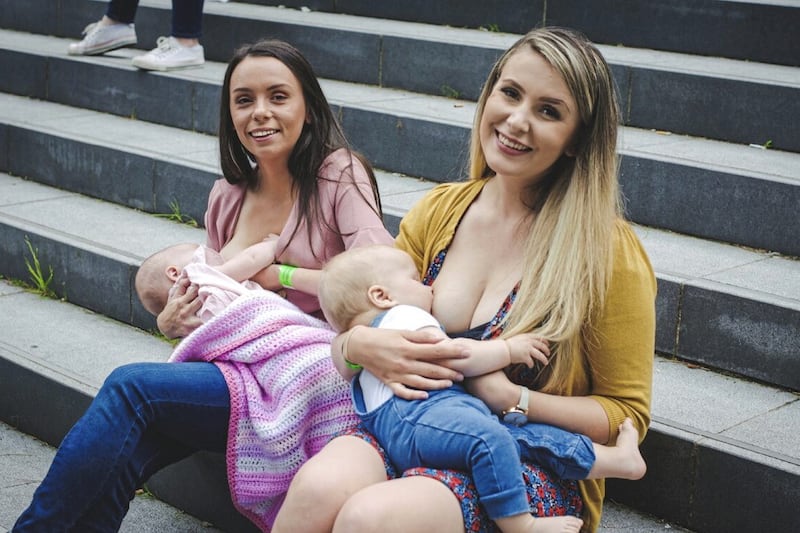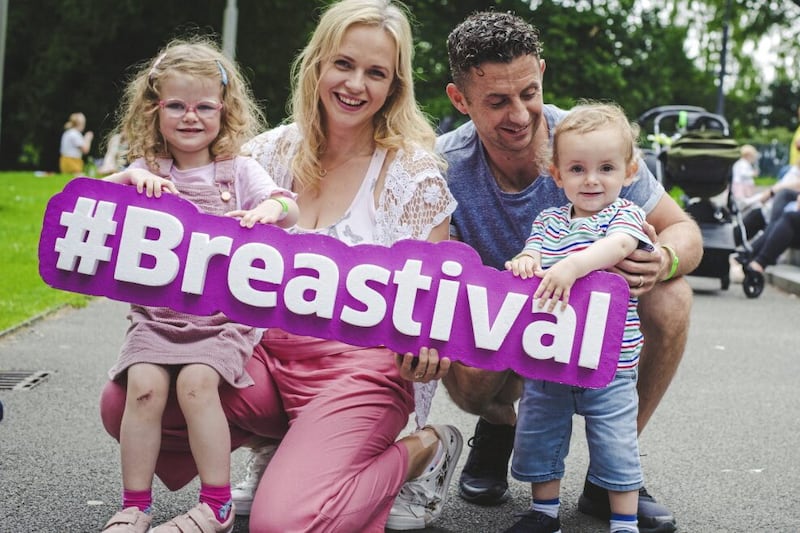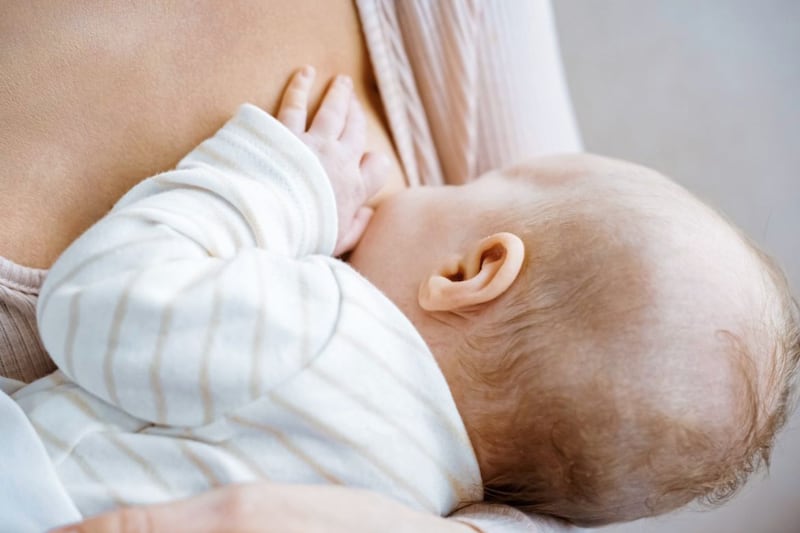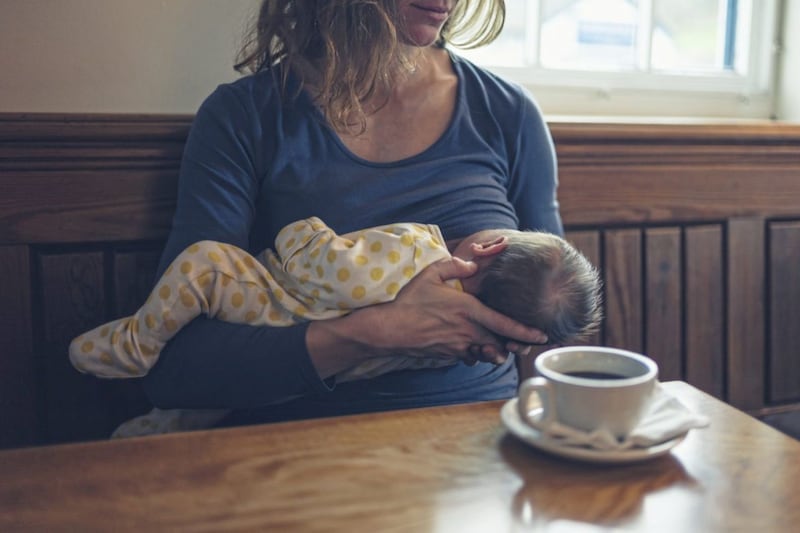Can you tell us about your expectations of breastfeeding as an expectant mum and the reality of what you experienced as a new mum?
I always knew I'd want to breastfeed if I ever had children and I bought into the narrative that, because it is 'natural', it would be easy and fairly unchallenging. I never judged anyone for bottle-feeding, but it wasn't how I pictured my own motherhood.
Then I had a baby and at first all seemed to be going well, but after a few weeks I had a niggling feeling something was wrong but was dismissed by my GP. Then, four weeks after the birth, I found myself back in hospital with an underweight baby, utterly bewildered by inconsistent advice and overcome by feelings of guilt and isolation because there were issues with the baby getting enough milk.
I was surprised by how little antenatal classes had prepared us for any issues with breastfeeding and we certainly hadn't been given guidance on expressing milk or using formula.
As the months progressed, I felt we were being set up to fail by the lack of on-going, joined up support for new mothers. I was also surprised by how much breastfeeding meant to me - it was the best, most special and joyful thing I've done, but at times had a very detrimental impact on my mental wellbeing.
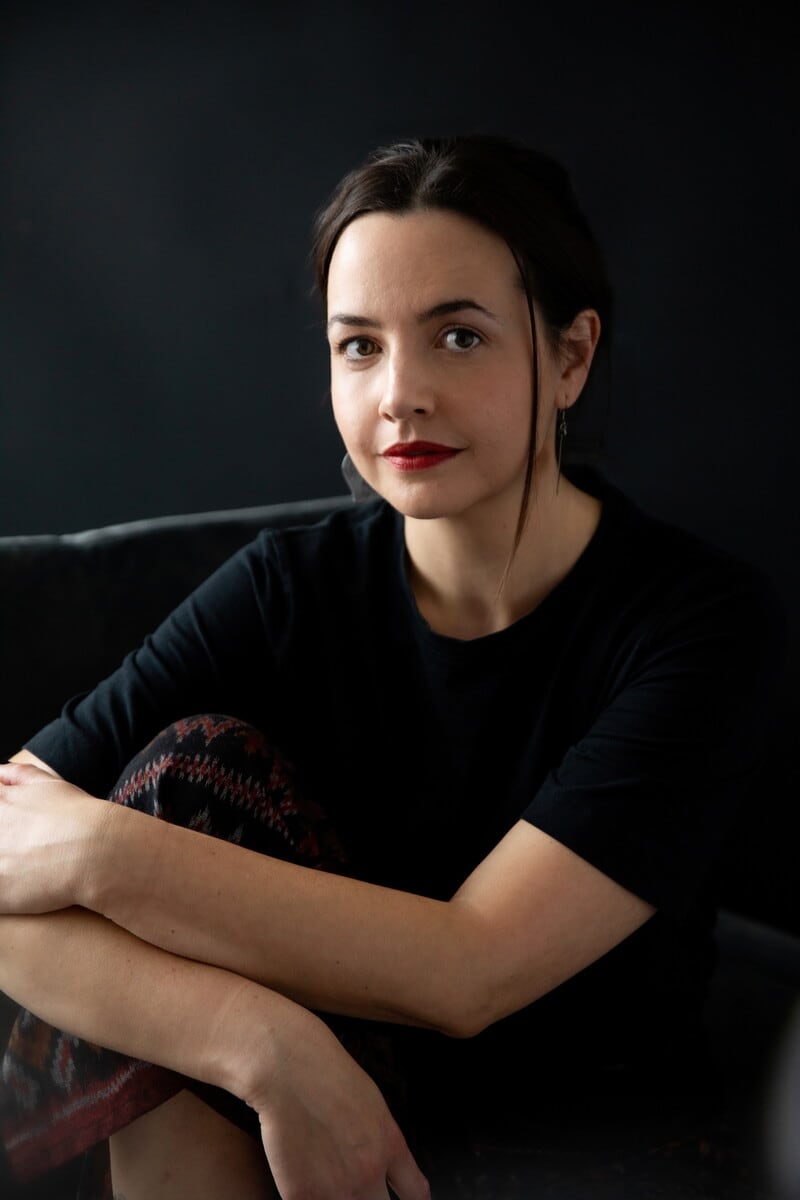
When were you inspired to write MILK: An Intimate History of Breastfeeding?
I remember sitting in the back of my parents’ car with my very small baby, wild with sleep deprivation, yet telling them about the book I wanted to read but hadn’t yet found.
I think MILK is the book I yearned for during the first year after my son was born. It's the invitation I needed to start conversations and talk about all these things – to connect how we feed our babies to wider feminist issues but in a nuanced and, at times, contradictory and paradoxical way.
Researching and writing MILK allowed me to go on an intimate journey of discovery, bringing together art, social histories, philosophy, folk wisdom and contemporary interviews with women from across the world. I wanted to explore how the world views caregivers, their bodies, their labour and their communal bonds.
The book probably opens out more questions than it ultimately answers, but I think these questions are critical for us to engage with as a society in order to better support new parents and move on from the unhelpful, binary discourse between ‘bottle’ and ‘breast’.

Read more:
Breastfeeding mums have nothing to be sorry for – quite the contrary in fact
Breastfeeding 'even better than previously thought'
DUP distances itself from Sammy Wilson breastfeeding comments
What can we learn from history as regards breastfeeding?
Infant feeding, to a degree, has always been influenced by societal and cultural changes and trends. It's not something we do in isolation. Baby bottles containing traces of animal milk have been dated to around 7000 years ago and there is a theory that they were used to wean older infants, to help a mother's fertility to return and reduce the gap between offspring.
Nomadic peoples need larger gaps between babies, but once farming communities are established and you are settled in one place, it is easier to have a large brood of small children. The move to agriculture also meant animals were on-hand to supply supplementary milk.

When did the switch from breast to bottle occur?
Bottle feeding grew in popularity over the course of the 19th- century, but most advice at the time strongly advocated maternal breastfeeding, especially because there was no knowledge of proper sterilisation.
Formula came about precisely because there really were no safe alternatives to breastfeeding if a mother was unable to feed, besides a wet nurse, which was also going out of favour.
By the early 20th century, there was a trend towards 'scientific motherhood'. This, coupled with aggressive marketing campaigns, then led to the popularity of formula. There was also status associated with bottle feeding and being able to buy formula.
I think there is broadly a shift back towards the breast, but this can be dependent on certain regions or group demographics.

What do you hope readers take away from reading your book?
I hope parents might feel less isolated, whether they have entirely positive experiences or whether they face any challenges. I know people have been surprised by some aspects of the history, but also touched by the honesty in my writing of my own experiences.
I also hope non-parents might pick up the book - we seem to be less curious about female experiences and histories, but we were all babies once. Someone once fed us milk of one kind or another.
If you had another child, how would you prepare mentally for feeding them?
I'd be a lot kinder to myself. I have a better grasp of how the 'good mother' narrative has been constructed and how it can serve as a way of making us feel guilty and inadequate a lot of the time. I'm much more comfortable being a 'good enough' mother now!
Plus, I feel more connected - not only with other mums in my community, but also with parents from across history.
Joanna Wolfarth will be joined by modern European history lecturer Niamh Cullen in Breastival’s opening event Milk: An Intimate History exploring breastfeeding through art, history and images. August 1 at 1pm.
Breastfeeding events for young and old

Award-winning family event, Breastival, returns for its seventh year, celebrating and normalising breastfeeding.
The week-long festival, which runs until August 7, coincides with World Breastfeeding Week and includes talks, workshops, and fun activities for all families to get involved in, both in person and online.
“Breastival is a beautiful celebration of breastfeeding in all its forms. This year’s theme is enabling breastfeeding by empowering working parents,” says Breastival founder Jennifer Hanratty.
“The work involved in establishing and maintaining breastfeeding often goes unacknowledged. Breastfeeding and breast milk generate huge value to society, through protecting the health of babies and mums and reducing the carbon footprint of feeding the next generation.
“Getting this community of women and supporters together is our way of helping to build confidence in choosing breastfeeding, breaking down barriers, such as a lack of supportive employment policies.”
While breastfeeding rates in Northern Ireland have improved in recent years, they are still amongst the lowest in Western Europe.
“Northern Ireland breastfeeding rates at discharge have increased from 46.1% in 2016 to 50.0% in 2020,” says Dr Hannah McCourt, Senior Health and Social Wellbeing Improvement Officer at The Public Health Agency.
“Breastival offers families a great opportunity to learn more about breastfeeding and its benefits as well as showcase the support that is available to breastfeeding mums.
“Breastfeeding is normal no matter where it happens and when mothers, fathers, partners, families and communities come together to show their support, we are one step closer to creating an environment where breastfeeding is accepted, and indeed welcomed across our society.”

Online sessions at Breastival include expert speakers covering your legal rights and the practicalities of returning to work while breastfeeding, a round-up of the latest home-grown research evidence on maternity care, breastfeeding support, and human milk and the screening of the new documentary, Breastfeeding Not On The Agenda, by Dr Ernestine Gheyoh Ndzi.
Breastival’s in-person Big Latch On, is on Saturday 5 at the Ulster Museum. The event includes fun activities for babies and toddlers, including baby-wearing dance, baby massage and yoga, sign and sing and sensory sessions.
There will also be talks on baby sleep, returning to work, breastfeeding your child with extra needs and women will have the opportunity to contribute to the mother’s milk tool, which calculates the economic value of the milk they have worked to make.
For full programme and tickets for all events, all of which are free to attend, can be found at breastival.co.uk.
